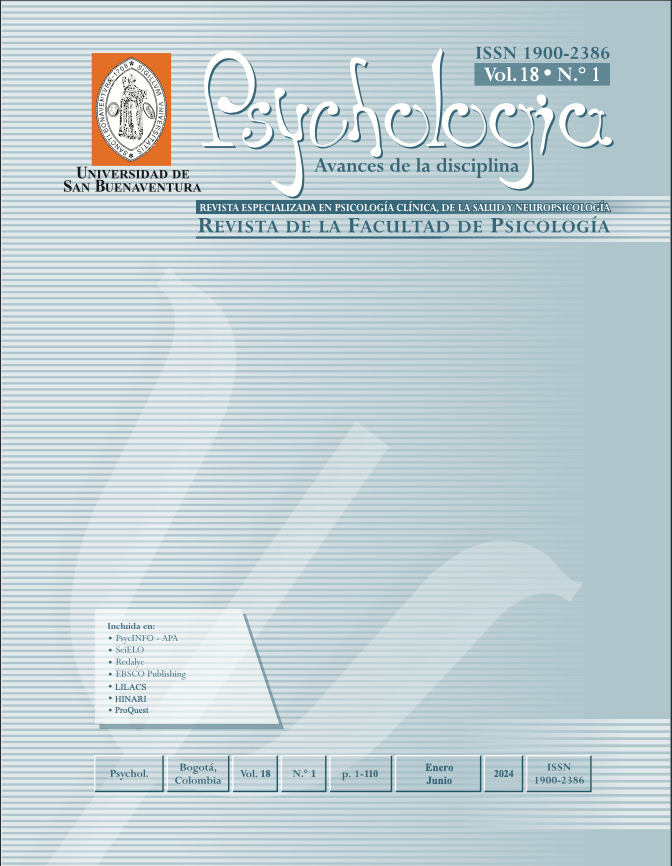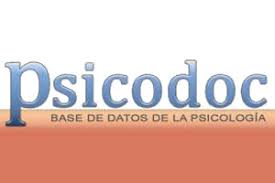This journal provides open, immediate access to its contents, based on the principle that offering the public free access to research helps to promote a higher global exchange of knowledge.
As such, all journal articles are published under a Creative Commons Attribution-NonCommercial-ShareAlike 4.0 International License (CC BY-NC-SA), by which commercial use of the original work or its possible derived works is not allowed, and the distribution thereof must be done with the same license elements regulating the original work.
http://creativecommons.org/licenses/by-nc-sa/4.0/
Abstract
The study aimed to conduct a systematic review of therapeutic treatments to cope with a love breakup from 1992 to 2023 in Spanish, English and Portuguese in EBSCO, PsycINFO, PubMed, Scopus, and Web of Science (WOS). Two independent researchers performed the searches and data extraction. Out of 156 records, 13 articles are included addressing treatments to cope with love breakups. Most of the studies found were in the United States and Iran and aimed to women. The studies showed a significant decrease in symptoms of depression and anxiety during the love breakup. Empirical evaluation of the efficacy of future interventions to deal with breakups is recommended, based on experimental designs in adolescents and young people of both sexes.
References
American Psychological Association (2002). Criteria for evaluating treatment guidelines. https://www.apa.org/practice/guidelines/evaluating
APA Presidential Task Force on Evidence-Based Practice (2006). Evidence-based practice in psychology. American Psychologist, 61(4), 271-285. https://doi.org/10.1037/0003-066X.61.4.271
Barajas-Márquez, M. W., Cruz del Castillo, C., & Fuentes-Balderrama, J. (2017). Characterization of a breakup in couples of university students: Differences in cognitive assessment of the event. Journal of Behavior, Health & Social Issues, 9(2), 99–104. https://doi.org/10.1016/j.jbhsi.2017.11.002
Barajas-Márquez, M. W., & del Castillo Cruz, C. (2017). Ruptura de la pareja en jóvenes: Factores asociados a su impacto. Enseñanza e Investigación en Psicología, 22, 2–12. http://www.redalyc.org/articulo.oa?id=29255775008
Behdost, P., Kargar, K., Ziaaddini, Z., & Salimi, H. (2019). The Effectiveness of Spiritual-religious Psychotherapy on Love Trauma Syndrome and Acceptance in female students with love failure. Health, Spirituality and Medical Ethics, 6(2), 45–51. https://doi.org/10.29252/jhsme.6.2.45
Blanco, M. (2011). El enfoque del curso de vida: orígenes y desarrollo. Revista Latinoamericana de Población, 8(5), 5–31. http://xa.yimg.com/kq/groups/22927858/686454259/name/RELAP8_1Blanco.pdf
Bonilla-Algovia, E., & Rivas-Rivero, E. (2021). Creencias sobre el amor romántico y las relaciones íntimas: Implicaciones en jóvenes de la Comunidad de Madrid. Informes Psicológicos, 21(2), 243–257. https://doi.org/10.18566/infpsic.v21n2a15
Brassard, A., St-Laurent Dubé, M., Gehl, K., & Lecomte, T. (2018). Romantic attachment and post breakup depression symptoms and suicidal behaviour. Sante Mentale Au Quebec, 43(1), 145–162. https://doi.org/10.7202/1048899ar
Carmona, C. (2012). Intervención al duelo por ruptura de pareja desde la terapia cognitivo conductual a partir del análisis de cuatro casos. Revista Polisemia, 13(35-46). https://doi.org/10.26620/uniminuto.polisemia.8.13.2012.35-46
Dehghani, M., Atef-Vahid, M. K., & Gharaee, B. (2011). Efficacy of short-term anxiety-regulating psychotherapy on love trauma syndrome. Iranian Journal of Psychiatry and Behavioral Sciences, 5(2), 18–25. https://doi.org/10.52547/pcnm.10.2.1
David, D., Cristea, I., & Hofmann, S. G. (2018) Why cognitive behavioral therapy is the current gold standard of psychotherapy. Frontiers in Psychiatry, 9. https://doi.org/10.3389/fpsyt.2018.00004
Espinosa-Sierra, V., Salinas-Rodríguez, J. L., & Santillán Torres-Torija, C. (2017). Incidencia del duelo en la ruptura amorosa en estudiantes universitarios en un Centro de Crisis, Emergencias y Atención al Suicidio (CREAS). Journal of Behavior, Health & Social Issues, 9(2), 27–35. https://doi.org/10.1016/j.jbhsi.2018.01.001
Falb, M. B. (2015) Effects of mindfulness training on individuals experiencing post- breakup distress: a randomized controlled trial. [Tesis inédita para optar por el Doctorado en Filosofía]. College of Bowling Green State University.
Field, T., Diego, M., Pelaez, M., Deeds, O., & Delgado, J. (2009). Breakup distress in university students. Adolescence, 44(176), 705–727.
Field, T., Diego, M., Pelaez, M., Deeds, O., & Delgado, J. (2011). Breakup distress in university students: A review. College Student Journal, 45(3), 461–480.
García, F. E., Garabito, S., Neira, M., & Puentes, E. (2020). Ruptura de pareja en adultos jóvenes y salud mental: Estrategias de afrontamiento ante el estrés del término de una relación. Psychologia, 14(1), 47–59. https://doi.org/10.21500/19002386.4560
Harris, N. (2015). A quantitative study of the effects of hatha yoga and mindfulness meditation in students experiencing romantic breakup distress [Tesis inédita para optar por el Doctorado en Filosofía en Psicología]. Sofia University.
Jankowiak, W. R., & Fischer, E. F. (1992). A cross-cultural perspective on romantic love. Ethnology, 31(2), 149. https://doi.org/10.2307/3773618
Kavanagh, D., Hides, L., Zelenko, O., Stoyanov, S., Cockshaw, W., Staneva, A., Wilson, H., Price, M & Dalgleish, J. (2016). Breakup Shakeup: A new tool for reducing distress and increasing the mental health and wellbeing of young people after a relationship breakup. https://eprints.qut.edu.au/200706/
Kim, S., Kimber, M., Boyle, M. H., & Georgiades, K. (2019). Sex differences in the association between cyberbullying victimization and mental health, substance use, and suicidal ideation in adolescents. The Canadian Journal of Psychiatry, 64(2) 126-135. https://doi.org/10.1177/0706743718777397
Krisnamurthi, P.B.U., Hanum, L. (2021). The effectiveness of online group cognitive and behavioral therapy on self-esteem and forgiveness in young adult women after romantic relationship break up. Advances in Social Science, Education and Humanities Research, 530, 38-45. https://doi.org/10.2991/assehr.k.210423.006
Lewandowski, G. W. (2009). Promoting positive emotions following relationship dissolution through writing. The Journal of Positive Psychology, 4(1), 21–31. https://doi.org/10.1080/17439760802068480
Liberati, A., Altman, D. G., Tetzlaff, J., Mulrow, C., Gøtzsche, P. C., Ioannidis, J. P., Clarke, M., Devereaux, P. J., Kleijnen, J., & Moher, D. (2009). The PRISMA statement for reporting systematic reviews and meta-analyses of studies that evaluate health care interventions: explanation and elaboration. PLoS medicine, 6(7), e1000100. https://doi.org/10.1371/journal.pmed.1000100
Londoño, V, & Cañón, S. C. (2020). Factores de riesgo para conducta suicida en adolescentes escolarizados: revisión de tema. Archivos de Medicina, 20(2), 472-480. https://doi.org/10.30554/archmed.20.2.3582
Machia, L. V., Niehuis, S., & Joel, S. (2023). Breaking-up is hard to study: A review of two decades of dissolution research. Personal Relationships, 30(1), 113–143. https://doi.org/10.1111/pere.12437
Manning, W. D., & Payne, K. K. (2021). Measuring marriage and cohabitation: Assessing same-sex relationship status in the current population survey. Demography, 58(3), 811–820. https://doi.org/10.1215/00703370-9162213
Martínez-Gómez, J. A., Sandoval-Cano, M., Soler-Cantillo, M. L., & Bolívar-Suárez, Y. (2021). Duelo amoroso, dependencia emocional y salud mental en mujeres que han terminado una relación de pareja. Informes Psicológicos, 21(1), 101–116. https://doi.org/10.18566/infpsic.v21n1a07
Maureira-Cid, F. (2011). Los cuatro componentes de la relación de pareja. Revista Electrónica de Psicología Iztacala, 14(1), 321–332. http://www.clikisalud.info/adicciones/paginas/pdf/cuatro_componentes_relacion_pareja.pdf
Menaldi, A., Mufidah, M. (2020). Mending a broken heart: a single case study on cognitive behavioural therapy for depression after romantic relationship break-up. The Cognitive Behaviour Therapist 13(55), 1-16.
Mirsu-Paun, A., & Oliver, J. A. (2017). How Much Does Love Really Hurt? A Meta-Analysis of the Association Between Romantic Relationship Quality, Breakups and Mental Health Outcomes in Adolescents and Young Adults. Journal of Relationships Research, 8, e5. doi:10.1017/jrr.2017.6
McCullough, L., Kuhn, N., Andrews, S., Kaplan, A., Wolf, J. & Hurley, C.L. (2003). Treating Affect Phobia: A Manual for Short Term Dynamic Psychotherapy. Guilford Press. https://doi.org/10.1017/S1754470X20000537
Moulinec A. (2022). Aimer à en mourir ou la douleur de la première rupture amoureuse [Loving to death or the pain of the first love breakup]. Soins. Psychiatrie, 43(340), 20–23. https://doi.org/10.1016/j.spsy.2022.04.005
Muela Aparicio, A., & Sansinenea Méndez, E.. (2020). Tratamientos psicológicos personalizados: orientaciones clínicas. Papeles del Psicólogo, 41(1), 16-26.https://dx.doi.org/10.23923/pap.psicol2020.2915
National Institute of Statistics and Geography (INEGI) (2018). Encuesta Nacional de la Dinámica Demográfica. Recuperado de: https://www.inegi.org.mx/contenidos/programas/enadid/2018/doc/resultados_enadid18.pdf
Navarro-Vásquez, P. (2020). Intervención grupal online para la elaboración del duelo y recuperación del bienestar psicológico tras una ruptura amorosa. Ciencia y Sociedad, 45(4), 119–132. https://doi.org/10.22206/cys.2020.v45i4.pp119-132
Negash, S., Cravens, J. D., Brown, P. C., Fincham, F. D. (2016). Relationship dissolution and psychologically aggressive dating relationships: Preliminary findings from a college-based relationship education course. Violence and Victims, 31(5), 921–937. https://doi.org/10.1891/0886-6708.VV-D-14-00054
Novo, M., Fariña, F., Seijo, D., Vázquez, M. J., & Arce, R. (2019). Assessing the effects of a parental separation education program on mental health problems. Psicothema, 31(3), 284-291. https://doi.org/10.7334/psicothema2018.299
Peel, R., Caltabiano, N., Buckby, B., & McBain, K. (2018). Mental health diagnoses and relationship breakdown: Which is the chicken and which the egg? International Journal of Innovation, Creativity and Change, 4(3). 98-116. https://ww.ijicc.net/images/vol4iss3/Raquel_Peel_et_al.pdf
Perestelo-Pérez, L. (2013). Standards on how to develop and report systematic reviews in Psychology and Health. International Journal of Clinical and Health Psychology, 13, 49-57. https://doi.org/10.1016/S1697-2600(13)70007-3
Ponce Valdivia, F. A., & Pinto, B. (2020). Enfoque estructural y terapia centrada en el problema aplicada a la ruptura amorosa. Ajayu Órgano de Difusión Científica del Departamento de Psicología UCBSP, 18(1), 244-270. http://www.scielo.org.bo/scielo.php?pid=S2077-21612020000100010&script=sci_arttext
Puente, A. F. (2017). Prevalencia de depresión en pacientes adultos con duelo por ruptura de pareja en el Centro Especializado de Psicología Integral-CEPSI. Universidad Central del Ecuador. http://www.dspace.uce.edu.ec/handle/25000/14108
Qasmani, M., Farhan, S., Israr, S. (2021). Efficacy of play therapy interventions on breakup distress and depressive symptomatology among individuals with non-marital breakup. Pakistan Journal of Psychology, 52(2), 3-21. http://www.pjpku.com/index.php/pjp/article/view/192
Rajabi, S., & Nikpoor, N. (2018). Comparison of the effectiveness of the transactional analysis training and emotion regulation on the improvement of love trauma syndrome: Dealing with the problems caused by the separation and love break up. Archives of Psychiatry and Psychotherapy, 4(20), 17–28. https://doi.org/10.12740/APP/99970
Rando, T. A. (1993). Treatment of complicated mourning. Research Press.
Rivera-Aragón, S., Villanueva-Orozco, G. B. T., Jaen-Cortés, C. I., Velasco-Matus, P. W., & Villanueva-Ramírez, R. I. (2022). El mantenimiento en las relaciones de pareja: Una forma de medirlo. Acta de Investigación Psicológica, 12(1), 117–136. https://doi.org/10.22201/fpsi.20074719e.2022.1.431
Rosse, R. B. (1999). The Love Trauma Syndrome: Free Yourself From The Pain Of A Broken Heart. Perseus Publishing.
Schrock, J. M., McDade, T. W., Carrico, A. W., D’Aquila, R. T., & Mustanski, B. (2021). Traumatic events and mental health: The amplifying effects of pre-trauma systemic inflammation. Brain, Behavior, and Immunity, 98, 173–184. https://doi.org/10.1016/j.bbi.2021.08.208
Soltani, M., Fatehizade, M. (2019). The Effectiveness of Compassion Focused Therapy on Depression and Rumination after Romantic Relationship Breakup: A Single Case Study. Quarterly of Clinical Psychology Studies, 10(37), 63-90 https://doi.org/10.22054/JCPS.2020.50657.2304
Soria, N. G. (2018). Malestares masculinos. Recorridos en el sistema de salud. En Área Género Sociedad y Políticas (Comp.), Estudios de género, disidencias sexuales, y masculinidades. Los entornos de la salud y el trabajo (pp. 32-45). FLACSO Argentina.
U.S. Census Bureau. (2021). Number, timing and duration of marriages and divorces. https://www.census.gov/newsroom/press-releases/2021/marriages-and-divorces.html
Valadez Ruiz, S., & Fernández Solís, M. E. (2018). Terapia breve cognitivo- conductual y centrada en soluciones en un caso de duelo por ruptura amorosa en un paciente homosexual. Revista Electrónica de Psicología Iztacala, 21(2), 723-752. http://www.revistas.unam.mx/index.php/repi/article/view/65300/57223
Valdez Medina, J., Aguilar Montes de Oca, Y., Torres Muñoz, M., Castro Gómez, B., García Rendón Gasca, E., Sámano Vallejo, A., Vélez Giles, B., Vázquez Barajas, Y. & González Arratia López Fu, y N. (2016). Nostalgia por la pareja. Acta de Investigación Psicológica, 6(2), 2422-2429. https://doi.org/10.1016/j.aipprr.2016.06.005
Worden, J. W. (2018). Grief Counselling and Grief Therapy: A Handbook for the Mental Health Practitioner (5th ed.). New York: Springer Publishing Company.
World Health Organization (2022). Salud del adolescente. https://www.who.int/es/health-topics/adolescent-health#tab=tab_1

 Perfil Google Scholar
Perfil Google Scholar




















